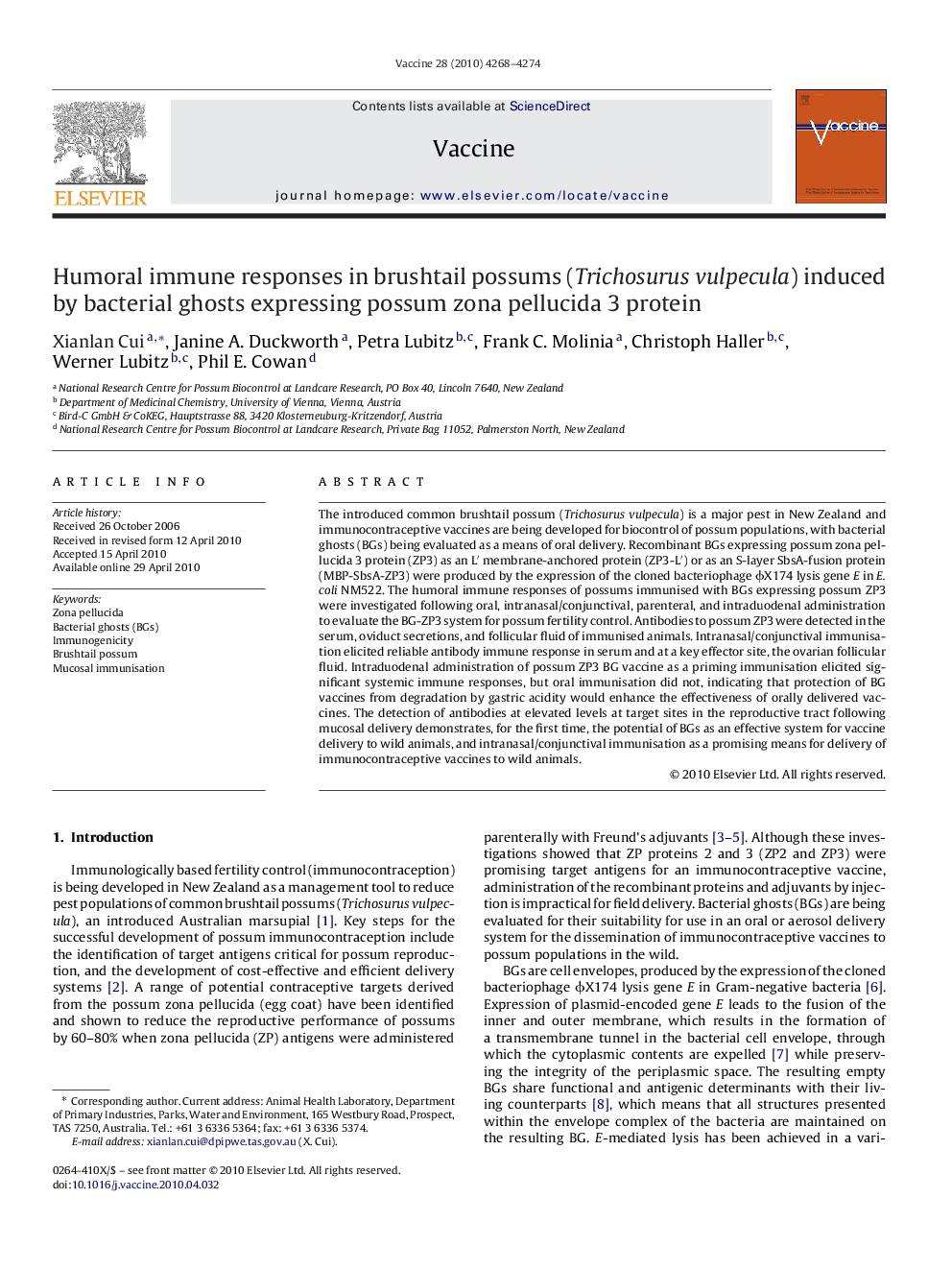| Article ID | Journal | Published Year | Pages | File Type |
|---|---|---|---|---|
| 2405728 | Vaccine | 2010 | 7 Pages |
The introduced common brushtail possum (Trichosurus vulpecula) is a major pest in New Zealand and immunocontraceptive vaccines are being developed for biocontrol of possum populations, with bacterial ghosts (BGs) being evaluated as a means of oral delivery. Recombinant BGs expressing possum zona pellucida 3 protein (ZP3) as an L′ membrane-anchored protein (ZP3-L′) or as an S-layer SbsA-fusion protein (MBP-SbsA-ZP3) were produced by the expression of the cloned bacteriophage ϕX174 lysis gene E in E. coli NM522. The humoral immune responses of possums immunised with BGs expressing possum ZP3 were investigated following oral, intranasal/conjunctival, parenteral, and intraduodenal administration to evaluate the BG-ZP3 system for possum fertility control. Antibodies to possum ZP3 were detected in the serum, oviduct secretions, and follicular fluid of immunised animals. Intranasal/conjunctival immunisation elicited reliable antibody immune response in serum and at a key effector site, the ovarian follicular fluid. Intraduodenal administration of possum ZP3 BG vaccine as a priming immunisation elicited significant systemic immune responses, but oral immunisation did not, indicating that protection of BG vaccines from degradation by gastric acidity would enhance the effectiveness of orally delivered vaccines. The detection of antibodies at elevated levels at target sites in the reproductive tract following mucosal delivery demonstrates, for the first time, the potential of BGs as an effective system for vaccine delivery to wild animals, and intranasal/conjunctival immunisation as a promising means for delivery of immunocontraceptive vaccines to wild animals.
